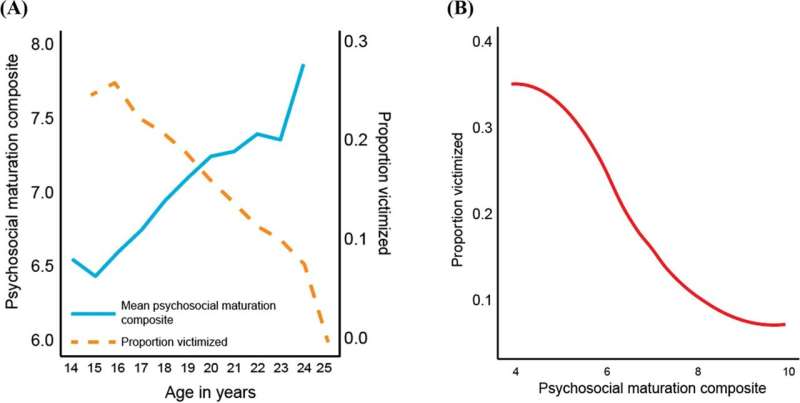Young people could learn to avoid being victims of crime

"We already know that immaturity is an explanation for young people's delinquency, but now we can show that immaturity also is an important factor in deciding whether young people become victims of violence or not," says Amber L. Beckley, a criminologist at University of Gävle.
Previous explanations for young people's over-representation as victims of crime, risky behavior and low self-control, could only explain a small proportion of victims. A research team led by Amber L. Beckley can now establish this fact on the basis of an American study that followed 978 American young people convicted of some form of crime for seven years,
Immaturity explains 20 to 30 percent of victims
By following the same young people over time, the researchers could establish that low psychosocial maturation was the strongest risk factor for victimization; adolescents and young adults who were more psychosocially mature than their peers were significantly less likely to become victims of crime.
"The risk is 20–30 percent lower. So, if we can teach young people how to plan and make responsible, careful decisions, we can also reduce the risk of them becoming victims of violence," Amber L. Beckley says.
U.S. has programs to help young people
In the U.S., there are a number of evidence-based programs that show that families can have an impact by teaching children new behaviors and by helping them make better choices, Amber L. Beckley informs us.
Moreover, programs also indicate that mentors, coaches, and teachers can help children assess risks and understand when they may be at risk.
According to Amber L. Beckley, one of the best programs that directly relates to this study involves teaching young girls to understand and anticipate risks of sexual abuse. By being given information, young girls develop confidence in making the right decisions. "So, there is evidence that programs that try to help young people to become more careful and thoughtful decision-makers can be effective."
A lack of knowledge in Sweden
According to Amber, a lack of knowledge in Sweden means that different interventions and methods are not tested. Her ambition now is to try to gain more support for such programs and for different groups to attend those, so that researchers could study the effects in different groups.
"Our findings suggest that it may be possible to reduce vulnerability to victimization by teaching young people responsible, thoughtful decision-making and how to plan. Furthermore, we show that it may be possible to identify vulnerability to victimization through psychosocial maturation assessment," says Amber L. Beckley.
More information: Amber L. Beckley et al, Maturing Out of Victimization: Extending the Theory of Psychosocial Maturation to Victimization, Journal of Developmental and Life-Course Criminology (2021). DOI: 10.1007/s40865-021-00182-8


















